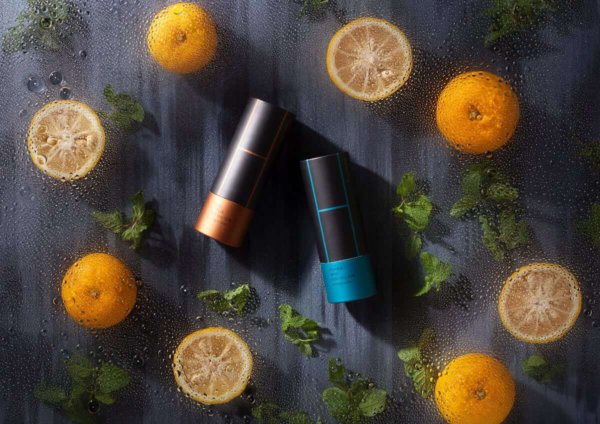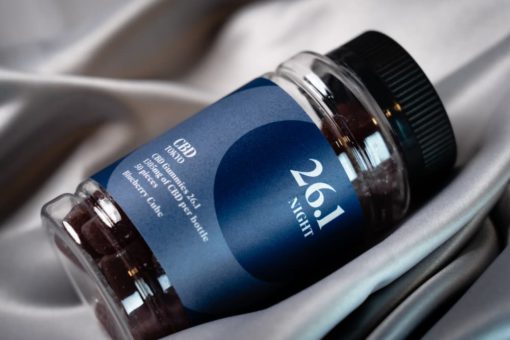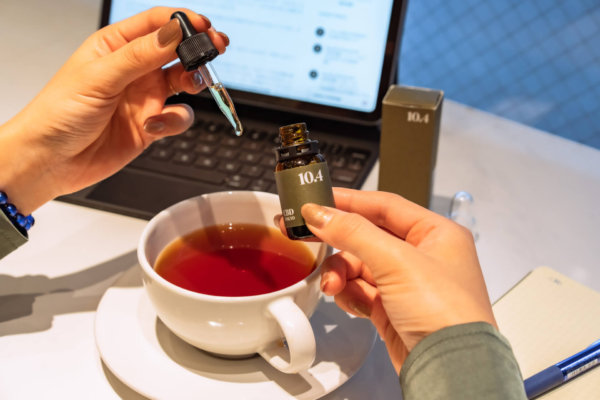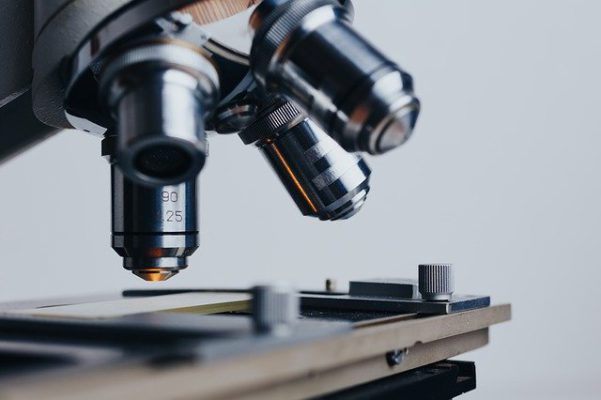CBD in Japan, CBD in Sports, CBD Medical Science, Medical, Pain Control, Sleep Improvement, Stress Management
CBD Oil and the Science Behind It – A Doctor’s Perspective
HealthyTOKYO was lucky enough to interview Dr. Blair, a medical doctor specializing in the field of Endocannabinoids. We sat down with him to hear his professional knowledge and better understand CBD oil and the science behind it.
Since 2014, Dr. Blair has specialized in studying, treating, and lecturing about the natural endocannabinoid system (ECS) in the human body. ECS disorders appear to be the root cause of many chronic medical problems and inflammation. His current goal is to restore health and well-being by enhancing the ECS using diet, exercise, appropriate medications, and non-psychoactive herbs.
Firstly, for those who don’t know much about CBD oil and the science of Cannabidiol, Dr. Blair gave us some general information
What is Cannabidiol?
Cannabidiol (CBD) is 22 carbon terpene cannabinoid derived from the stem of the Cannabis Sativa L. plant. CBD is effective as a phytocannabinoid with cellular signaling properties that interfaces with the ECS and other body systems.
Is THC present in CBD oil?
The amount of THC found in most CBD oil is negligible. The amount is imperceptible and has no psychoactive effect.
What is the difference between CBD and THC?
Tetrahydrocannabinol (THC) is a psychoactive but CBD has no psychoactive qualities whatsoever. Instead, CBD promotes brain function and memory.
Is Cannabidiol only present in Hemp or other foods too?
Cannabidiol is found in many different products. Truffles contain a cannabinoid stimulator. Flax fibers have been shown to contain CBD. A recent study showed improved wound healing with linen bandages that contain CBD.
Now that we know what CBD is, we asked Dr. Blair about the requirements for CBD oil
What should you look for in high-quality CBD oil?
There are many important factors to consider when looking for CBD oil because not all CBD oils are created equal. To ensure you’re only getting the highest quality CBD oil, you need to check for these three things:
-
- That it was grown organically.
- The product undergoes a strict lab analysis for purity.
- The company provides transparency and high-quality products.
After hearing about what to look for in a good quality CBD oil and the science of the product, Dr. Blair told us how this dietary supplement is seen in the US
How is CBD oil perceived in the US?
Similar to Japan and many parts of the world, support for CBD in the USA is polarized. Some believe that anything associated with cannabis is bad as they think of it as an illicit drug, even though CBD is a legal food supplement and does not contain recordable amounts of THC. On the other hand, many believe anything from cannabis is good, therefore casting CBD oil and the science of its effects in a positive light only if it contains significant THC. There is also a third group of knowledgeable individuals that have reviewed the clinical science and understand the evidence for the benefits of this substance.
CBD oil is often in the news these days. What do you attribute this to?
In my opinion, three factors have contributed to CBD oil’s rise in popularity. These are:
-
- The failure of contemporary medicine to fully care for and manage modern disease diagnosis and treatment.
- Consistent favorable clinical documentation of the successful use of CBD oil and the science related to it.
- Improving research in the field.
Now more than ever, CBD oil as a food supplement and its potential for improving health and well-being is gaining recognition. I feel this is because of the popular revolt against the false dangers of cannabis and political overreach. People are taking their health and well-being into their own hands. This is also to combat the failure of contemporary medicine to effectively treat some modern diseases. There is also mounting clinical evidence and documentation of the positive health effects of CBD oil.
Do doctors in the US recommend CBD oil?
Yes, now that more and more people are realizing the benefits of CBD oil and the science of how it benefits the mind and body, more knowledgeable professionals are recommending it for a variety of ailments. The doctors recommending CBD oil range from homeopathic to allopathic doctors. Also, as CBD oil is a dietary supplement, a prescription isn’t necessary.
Here, Dr. Blair gets straight into the effects of CBD oil and the science of its effects on the body
From your point of view as a medical professional, we would like to understand CBD oil and the science behind the potential benefits of using it.
In both my personal and professional opinion, there are numerous benefits to consuming CBD oil and the science of its effects speak for themselves.
-
- CBD oil optimizes cellular function.
- CBD also appears to restore or maintain homeostasis (which means it will rebalance your system and steer you away from extremes).
- CBD also acts as a signaling molecule to all cellular structures, tissues, and systems
- CBD oil is a neuro-immune-endocrine modulator
- CBD also affects many biologic pathways besides the endocannabinoid system. (According to a review of medical literature, I count over 91!)
Are these health benefits only physical or does CBD also provide mental clarity?
CBD oil is a holistic food supplement and the positive effects extend beyond the physical. The benefits of CBD oil extend to an improved mental and emotional state too. For many, the following clinical changes have been observed:
-
- Improved mental focus
- Relief from anxiety and depression
- Promotes calmness
- Enhanced memory recall
- Faster speed of processing
- Quicker reaction times, physically and mentally
- Improved visual acuity
- Better mood
- Enhanced humor
- Higher levels of empathy and compassion
- Enhanced sense of taste
- More vivid color perception
- Improved sleep quality
- Enhanced sexual libido
Can you give us some actual cases where CBD oil has helped people?
I’ve seen many people find relief from the following issues after consuming CBD oil. These range from:
-
- Relief from epilepsy – CBD oil has been known to reduce the number and severity of seizures. In addition, it prevented serious brain injury during seizures and shortened the recovery period. Several parents have been thrilled with their child’s improved growth and learning.
- Autism – more specifically, CBD oil reconnects neurons in the brain. CBD oil is by no means a cure for autism but, it provides substantial improvement. It is known to relax, relieve anxiety and bring those affected, down on the autism spectrum. To see such improvement, I recommend target doses in 15 g intervals.
- Antibiotic properties – effective against Staphylococcus, Streptococcus, and hepatitis C virus along with anti-inflammation have helped heal wounds fast without pain.
- Dementia and Alzheimer’s disease – can reduce the severity of symptoms. after a few weeks of regular CBD oil consumption, several clients have reported memory recall and functionality can improve.
- Asthma – Consuming CBD oil results in improved lung function and prevented asthma attacks, emergency care, or hospitalization.
- Sleep disorders and insomnia – positively affect the sleep cycle by reducing anxiety-related REM sleep and lengthening the duration of stage four sleep (deep sleep).
- Pain – relaxes and relieves pain due to its analgesic effects.
- Liver failure – CBD helped stop the inflammation and fibrosis to heal the liver in one man facing liver transplantation.
- Stroke – prevents brain damage and repairs the affected parts of the brain through long-term functional recovery, reducing neuronal loss and neuroinflammation. CBD might be able to stop a stroke in the process if given within 6 hours of an event.
- PTSD – could cure PTSD by promoting calmness, more restful sleep, reducing anxiety and undesired memory recall. Most patients have felt immediate benefits that improve over time.
- Cancer – CBD oil has helped to kill cancer cells in patients including lung, prostate, and ovarian cancers as well as reduce the bad effects of chemo-radiation cancer therapy
Although a lot of studies are pre-clinical (done on animals), there are still many clinical (human) results too.
Does CBD oil as a supplement improve physical fitness?
Yes, CBD oil can increase the effectiveness of workouts through:
-
- Increasing lung capacity
- Improved optimism and confidence
- Creating an anti-inflammatory effect
- Heightening anaerobic metabolism
- Increasing endurance
- Better focus and mental clarity
- Analgesic effect (no pain)
- CBD oil facilitates anandamide release which mimics the endorphin rush from exercise.
I find CBD oil is best taken 1-2 hours before workouts for optimum effectiveness.
Does CBD oil benefit the skin? If so, in what way?
CBD oil is a natural anti-inflammatory so it promotes skin renewal and cell growth. It also blocks inflammatory cytokines. CBD oil is also effective for wound healing if applied topically.
Dr Blair then proceeded to the benefits of CBD oil and the science of adding it to your diet as part of a healthy lifestyle
How can you add CBD oil to your diet?
CBD oil can be taken several ways, orally, topically, or vaporized. If taking CBD oil orally, it is best to swish it around the mouth as the most absorbent part of the mouth is the back of the tongue.
How much CBD oil should I take to see noticeable benefits?
I think it is best to follow the recommended dosage listed on the back of the bottle. A 15mg tincture twice daily, is a good starting point. Depending on your needs, you can adjust your dosage up or down. Some conditions may need higher doses for a limited period, some longer. Additional benefits are rarely seen over 200mg per day by me and for some 5mg per day is sufficient. Another good thing about CBD oil is you won’t build a tolerance to CBD so no increase in dose is required. Furthermore, as it is a food supplement, you can add it to your diet at your leisure.
Are there any risks associated with CBD oil?
There is no risk of toxicity at any dosage level of CBD oil. In my opinion, there are no significant adverse side effects. CBD oil exhibits rare drug interactions and does not affect coagulation. If you are sensitive to THC, then a smaller amount of CBD oil is recommended. If you are highly sensitive to CBD oil, you may experience some general fatigue. To most, CBD oil is calming but can also work as a stimulant and produce vivid dreams for a short period. Paradoxically, CBD can make some people alert during the day but help them sleep at night.
Do you recommend any methods for optimum CBD oil effectiveness?
An effective way to make the most of CBD oil in your diet is to follow a ketogenic diet or similarly, a low-carb diet. CBD oil works well in conjunction with omega 3s such as DHA and EPA. Alpha-linolenic acid or plant-based forms of omega 3-s only convert at 5% efficiency. However, there is a form of algae being developed that contains omega 3-s that are similar to animal-based DHA and EPA.
Any last notes or comments regarding CBD oil?
All in all, for optimum health, CBD oil is best taken as part of a holistic approach to health with a balanced diet and regular exercise.
There you have an extensive interview with Dr. Philip Blair MD explaining CBD oil and the science* behind the supplement and the health benefits it provides, in his opinion. Dr. Blair has decades of experience in family medicine. His knowledge and expertise also extend to his time as a combat physician in the military. He is a leading specialist in the endocannabinoid system (ECS), the effect of non-psychoactive herbs, and their role on the human body.
This interview is the first in a series about CBD oil.
*Please note: All views and opinions stated are of Dr. Blair MD as relayed to our reporter.
About Dr. Blair
Dr Philip Blair MD graduated from West Point in 1972, attended the University of Miami School of Medicine, then trained as an Army Family Physician before rising through the ranks of the US Army to Colonel, and as a combat physician in the 1st Gulf War. His military career spans three continents and served 29 years in uniform. In the year 2000, he retired from the Army to consult on complex disease management. He is currently the medical director of Pro Health Advisor, Inc.









